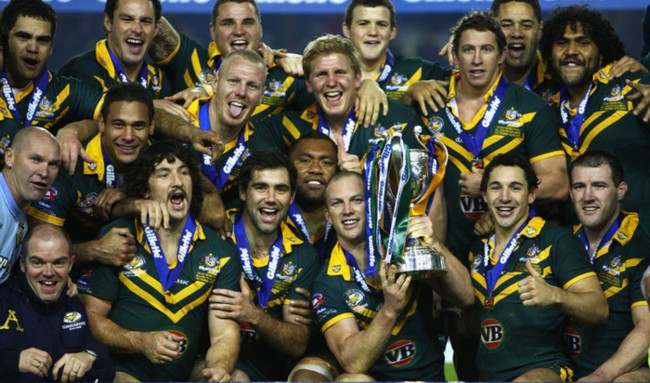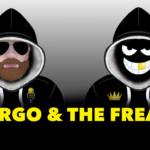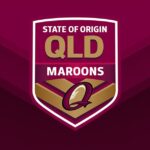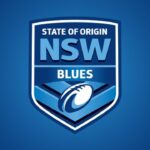
They are the most successful team in either code of international rugby. They have had a stranglehold on international Rugby League for over a quarter of a century. They hold every single international trophy available to them.
The Australian Kangaroos have an incredible winning record in World Cup tournaments, only failing to reach the final in their very first tournament back in 1954. The Australian Kangaroos haven’t failed to impress fans and their country with its winning reputation. Even online bookmakers Betway back the Australian Kangaroos to win.
In recent years Australian Kangaroos players such as Billy Slater, who was the top try-scorer and player of the tournament in the 2008 World Cup. He is renowned as one of the world’s most dangerous players from broken play. Other players include Cameron Smith, who is rated universal world’s best hooker.
The Australian Kangaroo’s set the standard for sporting excellence.
The Birth of The Green And Gold
In 1924 the decision was taken to change the national jersey’s colours to green and gold. A green jersey with gold bands was used for Australia’s next Test series in 1928, making the 1928 Kangaroos the first Australian representative rugby league team to adopt these colours. This design was revived for the July 25, 2003 Test against New Zealand.
In 1929 the current design, which is green with two gold “V”s was adopted and first used. However, for the first twenty years of international competition, the jersey was in a state of flux. When playing in Australia the team would wear sky blue or maroon, depending on whether they were playing in New South Wales or Queensland. On tours, Australia would wear either the sky blue of New South Wales (as the New South Wales Rugby League organised the tours) or a maroon and sky blue hooped design. This design was revived in 1963 when Australia played South Africa.
The Australian War Cry
From 1908 to 1967, the Australian team performed a war cry before Tests played in England and France. The war cry was first performed when the Kangaroos arrived at Tilbury Docks in England. It was developed after war cries had been performed on tours of England by the New Zealand All Blacks in 1905, the South African Springboks in 1906 and the New Zealand All Golds in 1907. It is believed that the war cry is derived from an indigenous chant on Stradbroke Island, Queensland, Australia. It went:
Wallee Mullalra Choomooroo Tingal
Nah! Nah! Nah! Nah!
Cannai, Barrang, Warrang, Warrang
Yallah, Yallah, Yallah, Yallah,
Ah! Jaleeba, Booga, Boorooloong
Yarnah meei, meei, meei
Meeyarra, Meeyarra, Jeeleeba, Cahwoon,
Cooeewah, Cooeewah, Wahh, Wooh.
Translated into English, it means:
We are a race of fighters, descended from the War Gods-
Beware! Beware! Beware! Beware!
Where we fight there will be great bloodshed-
Go! Go! Go! Go!
We are powerful, but merciful. Are you friends?
Good! Good!
The Kangaroo is dangerous when at bay.
Come on. Come on, Death.
The war cry was last performed by the Kangaroos in December 1967 in France.
Rugby League World Cup Wins
The Rugby League World Cup is the pinacle of achievement in the game. Of the 12 World Cups held since 1954 Australia have won 9 of them.
2013 – Australia 34 defeated New Zealand 2
2000 – Australia 40 defeated New Zealand 12
1995 – Australia 16 defeated England 8
1992 – Australia 10 defeated Great Britain 6
1988 – Australia 25 defeated New Zealand 12
1977 – Australia 13 defeated Great Britain 12
1975 – No Final Required
1970 – Australia 12 defeated Great Britain 7
1968 – Australia 20 defeated France 2
1957 – No Final Required
Australian Rugby League Ashes Victories
It took 40 years before Australia took a stranglehold of the Ashes. Until the 1950’s Australia had only managed to win the Ashes twice.
1911 Great Britain 0-2 Australia
1920 Australia 2-1 Northern Union (GB)
1950 Australia 2-1 Great Britain
1954 Australia 2-1 Great Britain
1966 Australia 2-1 Great Britain
1973 Great Britain 1-2 Australia
1974 Australia 2-1 Great Britain
1978 Great Britain 1-2 Australia
1979 Australia 3-0 Great Britain
1982 Great Britain 0-3 Australia
1984 Australia 3-0 Great Britain
1986 Great Britain 0-3 Australia
1988 Australia 2-1 Great Britain
1990 Great Britain 1-2 Australia
1992 Australia 2-1 Great Britain
1994 Great Britain 1-2 Australia
2001 Great Britain 1-2 Australia
2003 Great Britain 0-3 Australia
Australian Rugby League Tri Nations Victories
1999 Australia 22-20 New Zealand Auckland
2004 Australia 44-4 Great Britain Leeds
2006 Australia 16-12 New Zealand Sydney
Australian Rugby League Captains
Arthur Hennessy (1908)
Denis Lutge (1908)
Alex Burdon (1909)
Dally Messenger (1908-1910)
Larry O’Malley (1909)
Robert Graves (1909)
Bill Heidke (1910)
Chris McKivat (1910-1912)
Sid Deane(1914) 
Arthur Halloway (1919)
Albert “Rick” Johnston (1919-1920)
Herb Gilbert (1920)
Charles “Chook” Fraser (1921-1922)
Jim Craig (1924)
Tom Gorman (1928-1930)
Herb Steinohrt (1932)
Frank McMillan (1933)
Peter “Mick” Madsen (1933)
Dave Brown (1935-1936)
Wally Prigg (1937-1938)
Joe Jorgenson (1946)
Ron Bailey (1946)
Len Smith (1948)
Col Maxwell (1948)
Wally O’Connell(1948)
Bill Tyquin (1949)
Keith Froome (1949)
Clive Churchill (1950-1954)
Ken Kearney (1956-1957)
Dick Poole (1957)
Brian Davies (1958)
Brian Carlson (1959-1961)
Keith Barnes (1959-1962)
Barry Muir (1960-1961)
Reg Gasnier (1962-1967)
Arthur Summons (1962-1964)
Billy Wilson (1963)
Ian Walsh (1963-1966)
Peter Gallagher (1967)
Johnny Raper (1967-1968)
John Sattler (1969-1970)
Graeme Langlands (1970-1975)
Phil Hawthorne (1970)
Ron Coote (1970)
Billy Smith (1970)
Bob McCarthy (1973)
Tommy Raudonikis (1973)
Arthur Beetson (1973-1977)
John Brass (1975)
Greg Veivers (1977)
Greg Pierce (1978)
Bob Fulton (1978)
George Peponis (1979-1980)
Steve Rogers (1981)
Max Krilich (1982-1983)
Wally Lewis (1984-1989)
Mal Meninga (1990-1994)
Laurie Daley (1993-1998)
Brad Fittler (1995-2001)
Paul Harragon (1995)
Geoff Toovey (1996)
Allan Langer (1998)
Gorden Tallis (2000-2002)
Andrew Johns (2002-2003)
Darren Lockyer (2003-2011)
Danny Buderus (2004-2005)
Craig Gower (2005)
Cameron Smith (2007-Present)



